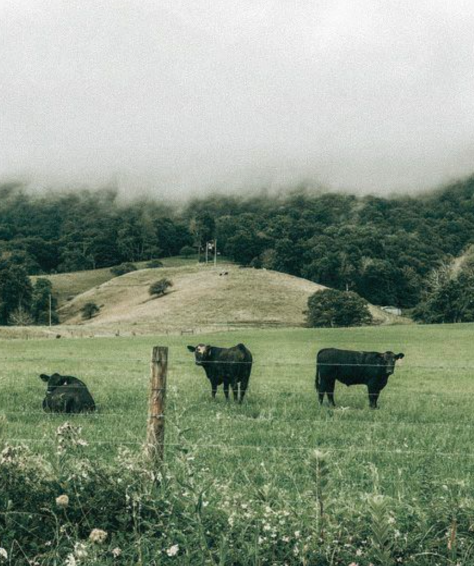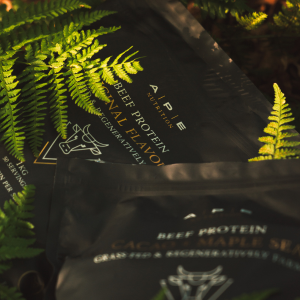Very few things in life are certain, but one thing I am absolutely sure of is, you cannot trust mainstream health guidelines.
Now whilst this article will focus on seed oils and their history, first I want to draw your attention to something that's happened recently.
Over the last couple of months, the first sentence above has been reinforced with the outing of Big Food companies, such as Nestle, funding food policy studies and the new US ‘Food Compass’ which has been brought in to replace the food pyramid. On first seeing the compass shared on an Instagram post, I genuinely thought it must be a joke. However, it turns out it was actually made by the Tufts School of Nutrition and was presented in September 2022 at the White House during a conference on nutrition, health and hunger in America. Not only that, but it took 3 years to create and was funded by tax payer dollars.
The compass puts foods into three categories; the top one being 'to be encouraged', the middle 'to be moderated' and the bottom 'to be minimised.' Believe it or not, the to be encouraged category contains frosted mini wheats, chocolate covered almonds and honey nut cheerios. Whereas the middle category contains sweet potato chips, egg substitutes fried in vegetable oil and almond M&Ms. Perhaps unsurprisingly, the bottom category actually contains by far the most nutritious foods; whole eggs fried in butter, cheddar cheese and ground beef. It's literally the wrong way round.
I know you might think, well no one’s going to pay attention to this, but what you've got to realise is that it's these studies that the government uses to set the menus at public institutions like schools, hospitals and old peoples homes. Needless to say, the study has a load of flaws, which have been laid out in a paper 'Limitations of the Food Compass Nutrient Profiling System'. Some of the ones that jump out to me most is that the negative health implications of processing foods has been massively downplayed as well as fortified and naturally occurring nutrients being classed as the same. The moral of the story is that we can't trust mainstream health guidelines and we need to take sovereignty over our own health… more on this at the bottom of the article.
In addition to this, the demonisation of meat continues and simultaneously there is an evident push for people to adopt a vegan diet. Now we’re not here to condemn those consciously eating an organic, real food vegan or vegetarian diet because they cannot stand the thought of an animal dying to feed them. Ultimately your diet is 100% your choice and although it’s not the way we view the world, we have a lot of respect for people who give up animal foods for this reason. However, if you’re not eating animal products because you think it’s healthier for the planet or yourself, there’s just no legitimate evidence to back this up. In fact, all the best research points to the opposite; diets including animal foods are healthier and when animals are farmed in a regenerative way, this is actually massively beneficial for the environment. Also, the mainstream push to adopt Veganism doesn’t focus on regeneratively farmed, organic and locally sourced fruits and vegetables but often promotes meat substitutes, packed full of factory produced seed oils and other BS.
With so many pseudo foods being pushed, which are almost always full of seed oils, we want to use this email to lay out exactly what they are and why they are so terrible.
You may ask, with all the amounting evidence against seed oils, why are official bodies disseminating such bad information. Well, the sad fact that many people don’t realise, is that Big Pharma (who are in in bed with Big Food and food policy makers) is a business that relies on us being sick. Not a nice thought but one that must be explored to deconstruct the web of lies we have been told by those setting food policies.
Anyway, the purpose of this article isn’t about uncovering larger corruption, it’s for you, to help convince you to avoid consuming seed oils whenever possible. We think that to truly put the final nail in the coffin for any seed oils that are slipping through the cracks into your diet, it’s important to lay out their history. The introduction of these has been one of the largest dietary shifts introduced in the last 100 years, with factory created seed oils sneaking their way into the majority of foods found on supermarket shelves.
Prior to their creation, tallow, butter and lard were the most common cooking fats. These are incredibly nutrient dense and provide our bodies with the nutrients needed for a whole host of processes, including; cellular function, preventing oxidation and brain health.
Whilst seed oils are promoted as the healthy option for cooking with, this couldn’t be further from the truth. The hydrogenation process creates plastic like fats, which are highly inflammatory to the human body. Weston A. Price stated that ‘Trans fatty acids (such as the ones in seed oils) are sufficiently similar to natural fats that the body readily incorporates them into the cell membrane; once there, their altered chemical structure creates havoc with thousands of necessary chemical reactions - everything from energy provision to prostaglandin production.’ To read more head to Weston. A. Price’s website and search ‘The Oiling of America’.
Looking back into the history offers us a bigger picture of how we got to where we are today. Seed oils are created as a byproduct of the waste that is produced from industries such as corn and cotton farming. The reason for their creation was not for improving human health, but in fact for, yep you guessed it… profit.
Procter and Gamble (P&G) were the first to create the waste product of cotton fibre (cottonseed) into a lard looking solid called Crisco. They originally used it to mass produce cheap bars of soap before realising that it resembled a cooking fat, so they should turn it in to just that (sounds nutritious).
Oh and by the way, cottonseed oil that is still used today in processed foods contains gossypol. This has been linked to liver damage, impairment of male and female reproduction and a whole host of other horrific side effects.
A huge marketing campaign was pushed out by P&G to encourage house wives to buy Crisco and switch from animal fats to this cooking alternative. Cook books with recipes including it were given out freely to encourage this switch, whilst simultaneously it was marketed as a cheaper and healthier option. Cheap maybe, healthy definitely not. As it was first introduced around the time of WWI, their adverts echo’d those of the war effort, and was promoted as something all ‘good housewives’ fed their family.
By 1912, 2.6 million pounds of Crisco was being sold and (not so) coincidentally, this was the same year the first heart attack was documented in a medical journal. At this time heart disease was incredibly rare and this paper was largely ignored. By 1916, 60 million pounds of Crisco was being sold and over the next decade heart disease steadily began to rise. During this time, other seed and vegetable oil (which are similarly bad) products had entered the market and the modern diet on mass, including soybean and corn oil.
Now whilst correlation doesn’t always equal causation, it’s interesting to note that the rise in heart disease rapidly increased inline with seed and vegetable oil consumption.
In 1924 the American Heart Association (AHA) was set up and in 1948, P&G, the creators of Crisco, donated $1.7 million to the AHA. A conflict of interests involving money is never too far away with these organisations. The AHA went from being a small organisation to having a huge amount of influence over the publics dietary choices.
In 1961 the AHA came out and blamed the rise in heart disease on animal fats. Demonising them heavily and pushing the ‘solution’ as everyone switching to seed oils… including Crisco, a major product made by their original investor.
Seed and vegetable oils have been linked to all the chronic diseases we’re seeing a huge rise in today, most notably; cancer, heart disease and type two diabetes.
Despite the mounting evidence against how terrible these oils are for human health, bodies like the AHA and the NHS have doubled down and continue to push these as healthy options. It begs the question, is this a matter of saving face and parroting an old message or is it something more sinister? At the end of the day, Big Pharma, who fund the AHA rely on people becoming sicker and sicker for their profit margins to grow. With that in mind, we'll let you decide for yourselves.
Looking at the history of seed oils is really eye opening and hopefully this is enough for you to get them out yours and your families diets. Instead, go back to eating and using the fats your great grandparents used to eat and cook with; grass-fed butter, beef tallow and ghee. These are packed with beneficial fat soluble vitamins and as long as they’re not over consumed, nourish the body and don’t cause inflammation.
We really hope you found this article informative and it really does put the final nail in the seed oils coffin for you. If you know anyone else who you think would like to or maybe needs to read this, please forward it to them and encourage them to sign-up to our newsletter where we share these articles prior to publishing them on our website.
Therefore if you want to see them first or if you know anyone who you think would like to receive this sort of information, please share with them our email sign-up link.






